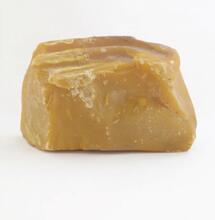Cannabis and the ADHD Brain

Cannabis use is growing in popularity among those with ADHD; some report it helps them manage symptoms like anxiety and poor sleep. However, many teens and adults do not realise that cannabis can disproportionately affect ADHD brains.
Studies have shown that more than 50% of daily and non-daily cannabis users have ADHD; similarly, around a third of teenagers with ADHD report using cannabis. Interestingly, People living with ADHD are three times more likely to have ever used cannabis than their neurotypical peers.
The chance of developing cannabis use disorder (CUD is also twice as high in those with ADHD. Today's THC concentrations are more elevated than in previous decades, and the negative effects of cannabis are significantly heightened in people with ADHD.
Cannabis use impairs regions and functions of the brain that are also negatively affected by ADHD. Weeds' adverse effects are most harmful to maturing brains. Many analyses show that cannabis usage in early life predicts worse outcomes, especially before age 25.
People with ADHD, with brain development hindered by slowly maturing frontal lobes, are more vulnerable to the effects that cannabis has on neuronal links, and some of these impairments may be irreversible.
Cannabis can also interact greatly with some ADHD medications. Research studies have shown that methylphenidate, otherwise known as Ritalin and Concerta) is especially susceptible to bad reactions and can induce strain on the heart.
Other studies have shown that cannabis may diminish the influence of stimulant medication. A person attempting to treat their ADHD with stimulants is disadvantaged as cannabis will impact them negatively and causes medication to become less effective.
The reported inflated risk of suicide associated with cannabis use only serves to heighten the complication of use by those with ADHD. As they statistically already have a higher risk for suicide in comparison to neurotypical people.
Cannabis activates the brain's reward system, releasing dopamine at higher levels than otherwise observed. Therefore to a low-dopamine ADHD brain, THC can feel extremely rewarding.
Many people with ADHD also argue that cannabis supports them to focus, sleep, or even slow down their thoughts.
Despite anecdotal reports of short-term symptom improvement, there is presently no solid evidence to suggest that cannabis helps manage ADHD in the long term.
The increased availability and legalisation of cannabis have improved accessibility. While this is good for many medicinal users, it leaves the market open to exploitation, with some cannabis products being falsely peddled as therapeutic for ADHD.
Other factors which contribute to a raised probability of cannabis use and CUD amongst people with ADHD are the preponderance of low self-esteem, poor sleep habits problems, deficient impulse control, and attention-seeking tendencies.







